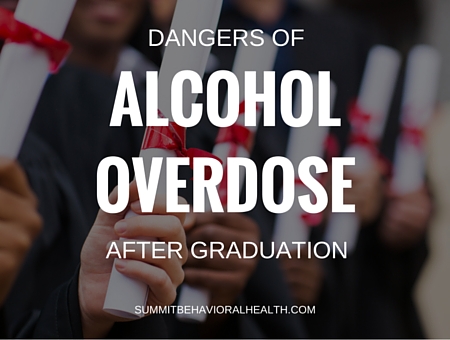Graduation from high school or college is a joyous time of culmination and celebration for most students and their families. Nervous energy permeates campuses across the country as young men and women rush to complete their senior projects and pull all-nighters in order to ace their final exams. Emotions run high as nervous seniors count the days, worry about grades, contemplate their futures and prepare to say goodbye to teachers, coaches and friends.
Partying is Such Sweet Sorrow
And let’s not forget the parties. Graduation parties abound, where the alcohol flows as freely as the promises to stay in touch and remain best friends forever. Many friends and fellow students are departing school for the final time to go their separate ways – some never to be seen again.
Let’s face it. Graduation is an emotionally-charged celebration, filled with equal parts excitement, exhaustion, apprehension, anticipation and a tinge of sadness – just the kind of social situation that can lead to disaster when fueled by too much partying and excessive alcohol.
Happy Time, Scary Statistics
Graduation is enough to make you want to stay home or keep your graduating kids far away from any parties. Graduation is a high-risk time of year for students. Did you know that the U.S. Department of Human Health and Services reports that approximately 1,900 youths under the age of 21 die each year from alcohol-related motor vehicle crashes? Close to 700,000 young people, ages 12 to 17, have an alcohol disorder, and over 5,000,000 young people engage in binge drinking? Simply put, just like New Year’s Eve, graduation often means those who’ve worked hard all year at school may find themselves overdoing it at their graduation celebration.
What are the Symptoms of an Alcohol Overdose?
In the giddy emotion of graduation parties, many students forget that alcohol impairs judgment and affects memory. Often in the excitement of the moment, grads lose track of how many drinks they’ve had and go overboard. Unfortunately, each year thousands of students end up in the emergency room, suffering from dangerous alcohol overdoses, which occur when high levels of alcohol in the bloodstream suppress the nervous and respiratory systems.
Signs of this life-threatening condition include:
- Vomiting
- Difficulty breathing
- Slowed or irregular breathing
- Mental impairment/confusion
- Stupor
- Loss of consciousness
- Passing out or coma (Don’t assume someone is just “sleeping it off” as they may be slipping into a coma)
- Hypothermia or low body temperature
- Bluish or pale skin
All of these symptoms are indicators that immediate medical attention may be necessary. Remember, overdosing on alcohol can lead to permanent brain damage or even death. So, any person showing one or more of these symptoms may require immediate assistance. If you observe any of these symptoms in friends, family members or fellow graduates, do not hesitate. Call 911 immediately and get help before it’s too late. Better to be safe than sorry.
What Else Can You Do?
There are alternatives to alcohol-fueled graduation parties. Consider hosting an alcohol-free party. Celebrate the end of the school year with a spirit-lifting, early morning hike with friends or kick off your future by volunteering time with a worthy organization.
If you’re the parent of a graduate, talk openly about the dangers of alcohol. And, always encourage your child to call if they have been drinking so that you can get them home safely. By taking proactive steps, lives can be saved.
Is Your Child Abusing Alcohol?
It’s important to remember that alcohol is a progressive disease. What may seem like a minor issue now can lead to a lifetime of addiction problems down the road. There is also a substantially greater risk of overdose and accidents. Don’t wait another day. Call now to speak with an addiction specialist.

